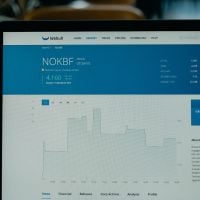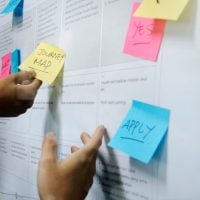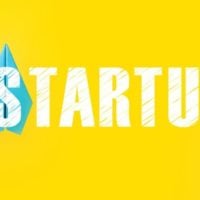Deadline: 18 June 2020
The European Union (EU) has announced a Call for Proposals for Civil Society Organisations (CSO) for a better, inclusive and resilient education in Nepal – COVID recovery.
Objectives of the Programme and Priority Issues
The global objective of this call for proposals is:
within the role of CSOs as actors of governance for SDG 4, to ensure inclusive and equitable quality education and promote lifelong learning opportunities for all in the context of recovery of the COVID-19 crisis in the education sector.
The specific objectives are:
- To promote a meaningful and structured participation of CSOs on governance issues about basic education at the local level (ward and Palika), including accountability and transparency, and in particular in terms of strategies for continuity of service delivery to most vulnerable populations;
- To promote inclusive access to quality education, with particular attention to girls, children with disabilities, out of school children, indigenous people and other marginalised and hard to reach groups , in light of the interruption of service delivery caused by the crisis;
- To promote schools as vectors of civic education, civic-minded participation and protection of the most vulnerable, in particular that of women, youth and marginalised populations, to be more active and effective members of society;
- To contribute in the improvement of organisational capacities in planning, implementation, monitoring, disaster preparedness and evaluation at local and school level.
The strategic priorities to be followed are:
- To work in close collaboration with Local governments (at both Ward and Palika level) and schools, following Nepal’s SSDP and its tools, avoiding substitution;
- To introduce climate change mitigation and adaptation measures, as well as building resilience with relevant stakeholders at both strategic and operational levels;
- To involve men and boys’ associations, women’s organisations, faith based organisations, youth organisations, local authorities, private sector, media, etc. in the transformative process of engendering social change, in particular by challenging stereotypes.
This call has 5 cross-cutting priority issues:
- Gender equality constitutes a fundamental human right and a common value of the European Union. As such, it will remain as the major cross-cutting aspect of any project proposed under the Cfp. 2020. Each selected project will therefore have at least one gender transformative outcome / objective, with relevant, SMART6 sex-disaggregated indicators as mentioned in the EU Gender Action Plan 2016-20207 Gender equality should entail physical and psychological integrity, economic empowerment and political participation as well.
- Protecting the rights of people with disabilities and other marginalised groups (caste, indigenous groups) and their social inclusion in education, disaster response, active participation and ensuring that the systems in place respond to their specific needs, is another cross-cutting issue that each project will be required to integrate.
- All proposals under this call for proposals must be designed according to the Rights-Based Approach(RBA) encompassing all human rights, whether civil, political, economic, social or cultural. The implementation of the five RBA principles: (i) legality, universality and indivisibility of human rights, (ii) participation, (iii) non-discrimination, (iv) accountability, (v) transparency must be applied in each step of the project cycle from identification, formulation, implementation, monitoring to evaluation.
- Actions should promote the resilience of the beneficiaries and the sector supported, in particular in the recovery phase of the COVID-19 crisis. To do so, applicants will use a Risk-informed programming methodology, that is, foresee the possible shocks that may affect the population /action and adapt the activities accordingly to reduce the possible negative impacts, and strengthen preparedness / response / recovery mechanisms within the sector.
- The action should be sustainable, and have a “multiplier effect”, i.e. a possibility for replication and extension of the outcomes, especially if it applies innovative approaches. To ensure replicability and extension, the action should have a robust monitoring system and adequate documentation.
Size of Grants
Any requested EU contribution under this call for proposals must fall between the following minimum and maximum amounts:
- minimum amount: EUR 500,000
- maximum amount: EUR 725,000
Location
- For LOT 1:
- Actions must take place in Province 2, however activities of advocacy and governance at national or interprovincial level can be accepted.
- For LOT 2:
- Actions must take place in Karnali Pradesh, however activities of advocacy and governance at national or inter-provincial level can be accepted.
Duration
The initial planned duration of an action may not be lower than 36 months nor exceed 48 months.
Eligibility Criteria
- Lead applicant
- In order to be eligible for a grant, the lead applicant must:
- be a legal person officially registered at least three years before the call is launched;
- be non-profit-making
- be a specific type of organisation such as: civil society organisation
- be established 12 in Nepal, in a Member State of the European Union, or in any countries eligible under the Financing Instrument for development cooperation for the period 2014- 202013;
- be directly responsible for the preparation and management of the action with the co-applicants and affiliated entity(ies), not acting as an intermediary;
- be allowed to implement activities in accordance with the Nepalese legal provisions
- In order to be eligible for a grant, the lead applicant must:
- Co-applicants
- The lead applicant must act with at least two (2) co-applicants, but not more than five (5) co-applicants:
- If the lead applicant is Nepali, it must act with at least two (2) co-applicants, out of which at least one (1) Nepali co-applicant;
- If the lead applicant is non-Nepali, it must act with at least two (2) Nepali co-applicants.
- Affiliated entity(ies)
- The lead applicant and its co-applicant(s) may act with affiliated entity(ies).
- Only the following entities may be considered as affiliated entities to the lead applicant and/or to coapplicant(s):
- Only entities having a structural link with the applicants (i.e. the lead applicant or a co-applicant), in particular a legal or capital link.
- This structural link encompasses mainly two notions:
- Control, as defined in Directive 2013/34/EU on the annual financial statements, consolidated financial statements and related reports of certain types of undertakings:
- Entities affiliated to an applicant may hence be:
- Entities directly or indirectly controlled by the applicant (daughter companies or first-tier subsidiaries). They may also be entities controlled by an entity controlled by the applicant (granddaughter companies or second-tier subsidiaries) and the same applies to further tiers of control;
- Entities directly or indirectly controlling the applicant (parent companies). Likewise, they may be entities controlling an entity controlling the applicant;
- Entities under the same direct or indirect control as the applicant (sister companies).
- Entities affiliated to an applicant may hence be:
- Membership, i.e. the applicant is legally defined as a e.g. network, federation, association in which the proposed affiliated entities also participate or the applicant participates in the same entity (e.g. network, federation, association,…) as the proposed affiliated entities.
- Control, as defined in Directive 2013/34/EU on the annual financial statements, consolidated financial statements and related reports of certain types of undertakings:
For more information, visit https://bit.ly/2L2vZxm









































